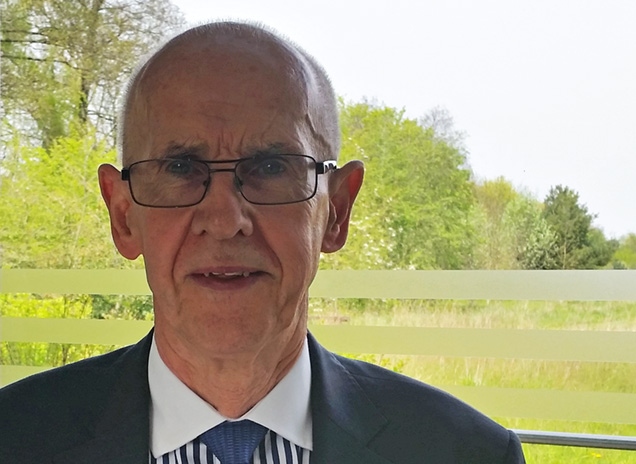What’s it like to work with a national leader of governance (NLG)? The Diocese of Hallam Schools Department in Sheffield worked with NLG Ed Wydenbach and we spoke to them to find out more.
How did Ed work with your schools?
In June 2013, we identified a need to strengthen aspects of governance in some of our 47 schools within our diocese.
Ed was an independent voice but he was able to draw upon the detailed knowledge of our school staff and governors, ensuring that his structured suggestions were grounded in existing knowledge and expertise. Ed took that insight as a foundation and helped us to build upon it.
As a leadership team we value school governors highly and appreciate their valuable role in holding our schools to account. We’ve found it immensely helpful to work closely with an NLG who is independent and can help us make sure governance and decision making is driven by what is best for the young people and adults in our schools.
The initial work with the first diocesan school led to Ed mentoring the new chair of governors but this support has significantly developed since that starting point. During the last three years, Ed has worked with over 20 of our diocesan governing bodies, carrying out a range of activities including reviews of governance, self-supported reviews and mentoring chairs of governors.
What do your governors say about receiving support?
The significant contribution of Ed in encouraging, supporting and giving direction has enabled our governors to work far more efficiently and effectively in holding headteachers and schools to account for their performance.
Pauline McConnan, Chair of Governors at Sacred Heart School in Sheffield told us that:
Ed had a tremendous impact on our governing body. He did two important things; he made us think about our strengths and areas for development and then, more importantly, he inspired us to improve our practice. He so readily shared his knowledge, experience and expertise and our entire governing body agreed that his delivery is exceptional! Ed taught us the importance of having a measured view of what we need to do and not to be overly ambitious in setting our targets. Testament to this is that, a year later, we are working through our 4 priorities and will soon be ready to review progress and then set our next priorities.
Trevor Horton, Chair of Governors at St Joseph’s School, added:
Following an inspection at which the school and governors were judged inadequate, it was clear much had to change. As a newly appointed chair of governors, I found Ed’s guidance and encouragement invaluable in leading governors through a skills audit and in agreeing a school governance development plan. Governors now undertake learning walks, attend parents’ evenings and have recently been judged good by Ofsted.
Did Ed work jointly with several schools?
Some of Ed’s deployments have been brokered by our team and some have been the result of direct requests from a school. Initially, our team and Ed were in regular email and phone contact about individual schools; however, it became clear that issues with governance were common in many of the schools Ed was working with, so we began to meet more formally on a termly basis to develop an overarching, more joined-up approach.
This led to us working together to develop a Catholic code of conduct for governors, the recognition of the need for more governing bodies to embrace ‘modern governance’ and the priority of a longer term strategy for governance including succession planning.
Damien Thorpe, Headteacher of St Mary’s Catholic Primary School told us:
Ed has made a huge impact on the governance of our school, things are better organised and fit for purpose. Governors feel more confident in their roles and have been able to gain a deeper understanding of how they can impact on the school and most importantly drive up standards. It was difficult at first, as any change is, but 18 months down the line we wouldn’t go back to how things used to be.
What other benefits have you seen from working in partnership together?
In Ed’s capacity as an NLG advocate, our team introduced him to 3 local authority governor departments. Ed was also given the opportunity to promote the NLG programme to governors and heads in the diocese.
Ed’s expert help has had a direct impact on our schools. This partnership has led to 2 chairs of governors in our diocesan schools being designated as NLGs in the latest recruitment round, an increase in the number of schools being rated good for governance in their latest Ofsted Inspection, and many individual schools who have significantly improved the quality of their governance.
If you’d like to get in touch with a national leader of governance please email governors@education.gov.uk or see the school-to-school support directory.
We would like to thank Ed Wydenbach and the team at the Diocese of Hallam Schools Department, Clare Thorpe, John Cape, and Jim Conway for their contribution to this post.
If you have any questions or feedback, please comment below. To keep up to date with this blog, you can sign up for email updates or follow NCTL on Twitter.
For more information or opportunities to get involved with our work, visit our pages on GOV.UK.

Leave a comment